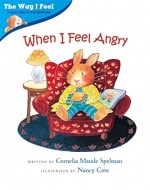Beyond Discipline for Preteens
March 03, 2018
Quote of the Week
"There can be no true discipline without love...only compliance." -Wes Fesler
Beyond Discipline For Preteens
 "The preteen transition is a tough one for most parents. Kids start to be heavily influenced by their desire to be respected by their peer group and that often conflicts with the standards we set at home.
"The preteen transition is a tough one for most parents. Kids start to be heavily influenced by their desire to be respected by their peer group and that often conflicts with the standards we set at home.
Meanwhile, we lose the automatic respect that most young children feel for their parents, and we have to start earning it. Parents who rely on punishment to control their kids (including timeouts and consequences) realize in the preteen years that it no longer works. In fact, we learn that it's actually impossible to control them when they're out of our sight, which they often are. Our only hope to retain some influence is to earn it."
As the article shares, it's most helpful to begin parenting with respectful, positive guidance, in order to raise preteens who are respectful, considerate, responsible, self-disciplined and delightful, right through the teen years. But for those who may not have gotten off to the start they'd hoped for, it's never too late -- this week's feature shares many practical tips! [read article]
Reading Corner
 Title: When I Feel Angry
Title: When I Feel Angry
By: Cornelia Maude Spelman
Ages: 5-7
"Anger is a scary emotion for young children, their parents, and caregivers. As this little bunny experiences the things that make her angry, she also learns ways to deal with her anger— ways that won't hurt others.
This comforting and direct story will help children cope with their anger and, at the same time, help them understand that anger is a normal feeling.
Knowing how to identify and handle emotions (especially those that are unpleasant or frightening) is as important as other kinds of learning. Therapist Cornelia Maude Spelman uses simple and reassuring language to help young children understand and manage their feelings and relate successfully to others." -Publishers
Be the Change
Prepare a list of positive discipline techniques that you know of. Spend some time thinking about situations where they could be helpful, so that you have them in your back pocket ready to experiment with at the appropriate times, instead of stumbling around trying to come up with something in the heat of a moment.





